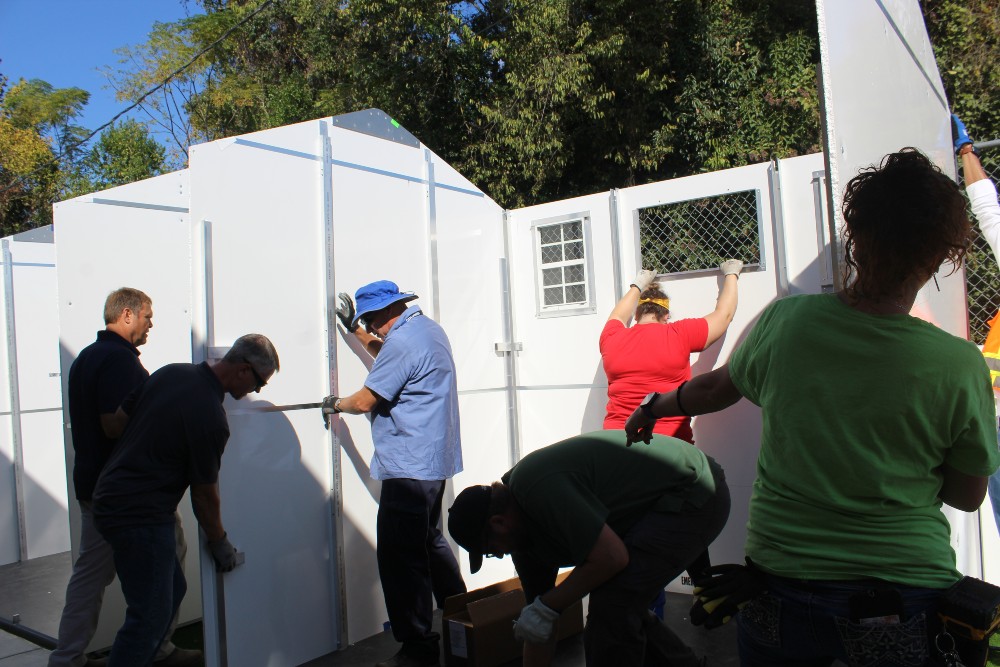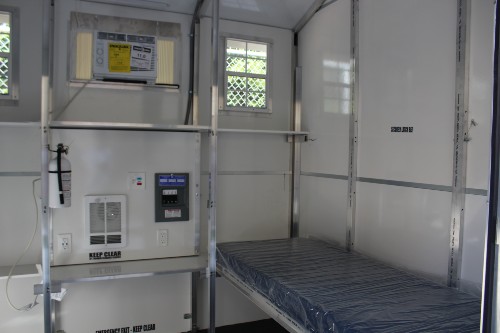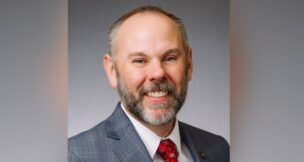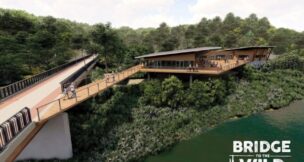Rapid Shelter Columbia on track to open soon
Christina Lee Knauss //October 27, 2022//

A new initiative aimed at serving the chronically homeless population in Columbia is on target to launch Nov. 1, according to city officials.
Rapid Shelter Columbia is a transitional housing project located on city property at 194 Calhoun St. It consists of 50 individual sleeping cabins, 40 for men and 10 for women. The new facility will be open year-round and include 24-hour security, on-site case management services and food services.
The sleeping cabins are manufactured by Pallet out of Everett, Wash., and include a bed, heating and air conditioning, electricity and USB charging ports. The project includes a total of 54 of the cabins, with four set aside for use by staff and security.
Mayor Daniel Rickenmann and other city and community leaders gave updated information about the new project and showed community members some of the completed sleeping cabins at an event Oct. 26. Construction on some cabins is ongoing.

The project is the result of months of work by a city task force on homelessness and is designed to serve men and women who are not good candidates for traditional homeless shelters with congregate housing.
“This is a new era for addressing homelessness here in Columbia and offers these men and women a dignified option to get the help they need,” said City Manager Teresa Wilson.
Officials estimate about 250 people in the city fit the target population for the project. The number of people who are considered chronically homeless has grown in recent months and caused an increase in calls to law enforcement and other officials about crime, public urination and defecation, panhandling and other issues, city officials said. Some businesses in downtown Columbia said customers expressed concern about safety.
Many of those living on the street also have physical and mental health needs that the new shelter can help address, officials said.
“This is a short-term solution to a long-term problem, and it’s not going to solve the problem of homelessness in Columbia, but it will help reduce it,” Rickenmann said.
The city has also recently hired a new director of homeless services, Kameisha Heppard, whose responsibilities include development of Rapid Shelter Columbia.
Heppard said clients will only come to Rapid Shelter through referral from other services. Case workers will soon begin evaluating applications and hope to initially place 10 people at the shelter once it opens. Clients will be able to stay at the shelter for up to 90 days. The shelter is only open to people who were living within the city limits.
“I’m excited about doing something here that hasn’t been done before in the Southeast,” Heppard said. “The goal is going to be to provide stabilization for these clients, whether they need mental health services, help with substance abuse, or other issues. We want to help address whatever it was that brought them to homelessness.”
Heppard said the shelter will offer some client services onsite and transportation will be provided to help clients get to doctor appointments, job interviews and other appointments.
The ultimate goal will be to guide clients to some sort of permanent housing, Heppard said.
Safety and security are a big concern with this new project, one the city plans to address with 24-7 security provided by a private firm. City of Columbia Police Chief W.H. “Skip” Holbrook said the department will work with shelter staff and the security firm to address any issues that escalate and require law enforcement intervention.
There will be a strong focus on conflict resolution, de-escalation of situations and addressing mental health needs, Holbrook said.
The congregate sleeping quarters that already exist at the Calhoun Street location will continue to be used to accommodate an overflow population during inclement weather.
P














